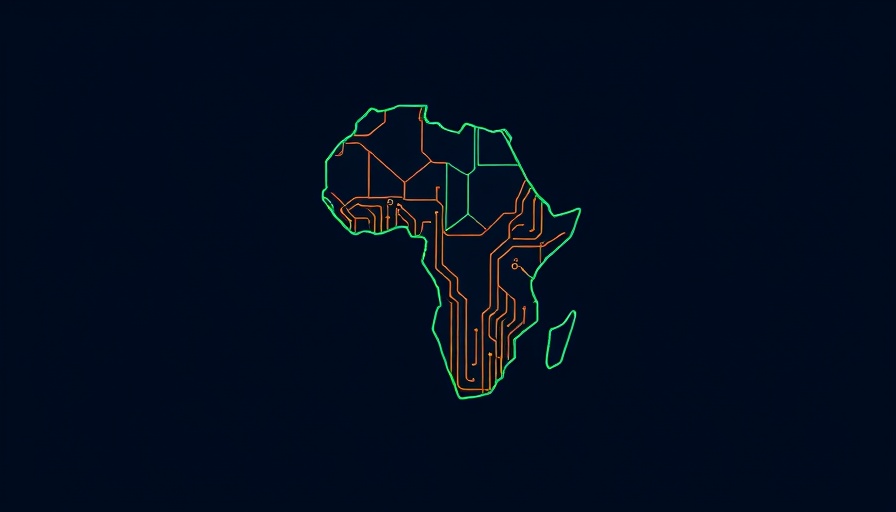
Web3: A New Dawn for Africa
The waves of change sweeping through technology are about to transform the economic landscape of Africa. As Christian Duffus, the founder of Fonbnk, articulates in his recent insights on the Africa Tech Summit Podcast, Web3 is more than just a buzzword; it represents a paradigm shift in how payments, finance, and community interactions take place on the continent.
Understanding Web3 and Its Impact
Unlike its predecessor, Web2, which centralized power and data within a few technology giants, Web3 offers the promise of decentralization. Using blockchain technology, this new version aims to return ownership and control back to individuals. This transition brings significant implications for micro-payments—a financial lifeline for many African entrepreneurs and businesses struggling with payment systems that are often inaccessible or inefficient.
Bridging the Payment Gap in Africa
Christian Duffus emphasizes that Africa's economic vitality relies heavily on informal payments and micro-transactions. Platforms like Fonbnk aim to enable easy, low-cost transactions for millions who are currently excluded from traditional banking systems. By leveraging Web3, these services can extend financial access to a broader audience, which is essential for the continent's growth.
The Role of Technology in Economic Empowerment
Educators, policy makers, and community advocates need to embrace technology as a tool for empowerment. The potential impact of Web3 can help inform strategies to foster financial literacy and inclusion among African communities. Education on navigating these digital platforms must be prioritized to equip individuals with the skills to thrive in this new economy.
Future Trends and Predictions
As Africa rapidly adopts these innovative technologies, the continent is set to become a leader in the global fintech arena. Organizations that support programming and development within this space might gain traction as they collaborate with local governments and tech entrepreneurs. This presents an exciting opportunity for future investments and partnerships.
Risks and Considerations in the Web3 Space
While the potential for Web3 in Africa is promising, it is essential to recognize the associated risks. Scams, regulatory challenges, and technological literacy barriers are real concerns that need addressing. A collaborative effort among stakeholders—including developers, governments, and educators—will ensure that Africa can mitigate these challenges effectively.
The Call to Action: Get Involved!
For individuals interested in the future of technology and its role in transforming African economies, engaging with Web3 initiatives is vital. Attending summits, participating in community discussions, or even taking online courses on blockchain technology can provide invaluable insights into this transformative era. It’s time for entrepreneurs, business owners, and community leaders to step into this world of possibilities that Web3 represents.
 Add Row
Add Row  Add
Add 




 Add Row
Add Row  Add
Add 

Write A Comment